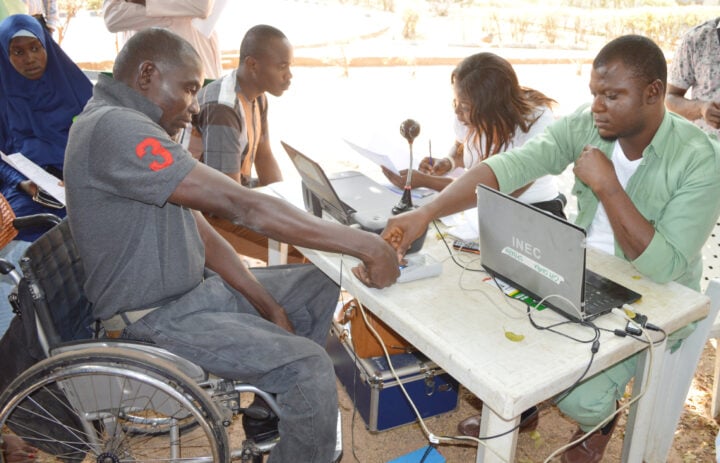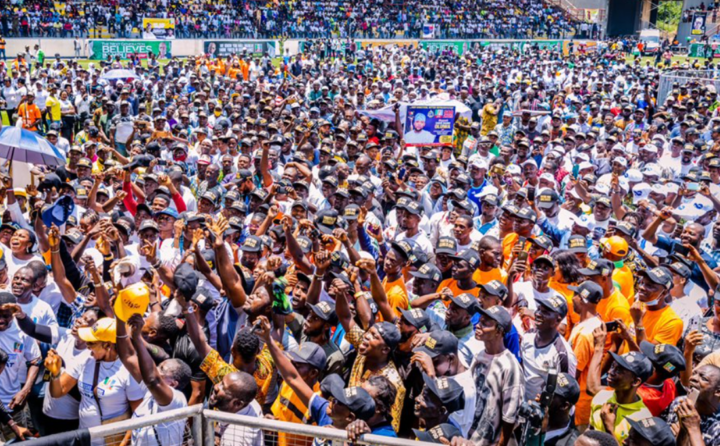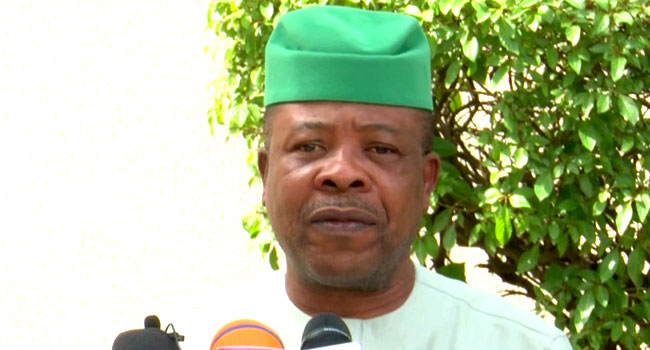BY MOSHOOD ISAH
The data of newly registered voters released by the Independent National Electoral Commission (INEC) is, to say the least, surprisingly low for a continuous voters registration exercise that kicked off ten months ago; June 2021 to be precise. According to the commission, as of January 14, 2022, over two million five hundred thousand Nigerians completed new registrations to join the voter register ahead of the 2023 general election. However, over one million of these new registrations which makes up 44.6% have been declared as invalid. This means a total of 1,390,519 Nigerians are set to be disenfranchised for avoidable reasons.
This is really discouraging considering the massive publicity and effort by interest groups to mobilise citizens to participate in the process. Also, the commencement of the continuous voters registration was met with enthusiasm as Nigerians thronged registration centres and online portals to reactivate their citizenship by getting registered to participate in the upcoming all-important 2023 general election. Unfortunately, just over one million new registered voters have joined the voter register. While there were a lot of technical challenges that led to low turnover of new voters after 10 months, the issue around invalid registration has further contributed to lower registration.
The major cause of invalid voter registration has to do with cases of duplications where citizens who are already on the voter register decide for one reason or the other, to undergo the process again. For instance, citizens who probably lost or damaged their permanent voters card (PVC) simply registered as new voters instead of applying for replacement of the PVC. Another instance has to do with Nigerians who relocated to other parts of the country and needed to transfer their voter registration to their new location but decided to register as new voters. Others who had their temporary voters card (TVC) decided to register newly because they could not collect their PVCs where they previously registered while others could not find their records on the INEC portal even when they tried to retrieve previous registrations.
Advertisement
The commission also added that, there are also registrants whose data were incomplete and did not meet their business rules for inclusion in the register. This incomplete data could be inaccurate biometrics or blurry pictures or other possible data that could not meet up with the quality control standard for registration. While the issue of double registration is not new to the CVR process in Nigeria, it is increasingly becoming an issue that must be rectified to forestall systematic disenfranchisement of Nigerians even before the election day.
Despite introducing the automated biometric identification system (ABIS) and automated fingerprint identification system (AFIS), it is ironic that the more comprehensive and robust system involving not just fingerprint identification, but also the facial biometric recognition, could not be integrated to flag duplications during the online pre-registration process, or during the physical registration at various INEC offices nationwide. Although the commission admitted the complicity of some of its staff in this debacle, these are not necessarily the best signs for a nation that will largely depend on technology for the conduct of elections in less than ten months’ time. Again, it’s also confusing that the automated identification systems deployed to clean up data basically deletes the new and updated registration information of citizens rather than using it to validate the old and possibly obsolete information existing in the system.
With the entire process ending in about two months’ time, June 30 precisely, Nigeria risks not adding the majority of its eligible citizens to the voters register. This is due to the fact that, an estimated 4.5-5 million Nigerians turn 18 (the constitutional age of electoral franchise) each year. This translates to between 18-20 million potential ‘new voters’ from the 2019 general elections to the 2023 general elections.
Advertisement
Some civil society organisations have also called on the INEC to do all in its power to salvage invalid registration saying the commission must take full responsibility. Beyond investigating and planning prosecution of the staff complicit in some of these cases, the least the electoral commission could do is to deploy effective mechanisms to rectify the situation to prevent the further deepening of the already existing apathy among Nigerians.
There are communication channels like publication of affected Nigerians on websites and how to rectify the situations. Also, the commission has access to registrants’ emails and phone numbers at their disposal and could reach out to affected citizens in a bid to update their registrations. This in fact will enable INEC to identify other reasons why registrants undergo the process multiple times and develop mechanisms to track or prevent recurrence especially in the process of registration.
Better still, the commission has an opportunity to review duplicate registrations while keeping the most recent and updated information to enable citizens participation in the upcoming general election. Also, Nigerians have recommended merging the voters’ register with the national identification number (NIN) because it has provided a platform for creating a national database of Nigerians.
At this point, it’s time for political parties, media, civil society organisations and the public to further intensify voter education especially around the implications of invalid registration while the commission ultimately should devise strategic means to eradicate or minimise the impact of the current invalid registrations.
Advertisement
Moshood Isah is the media officer of Yiaga Africa. He is a perennial election observer, credible elections advocate, and a strategy team member of the Not Too Young To Run Movement. He can be reached via [email protected], and on Twitter @Moshoodpm
Views expressed by contributors are strictly personal and not of TheCable.
Add a comment





